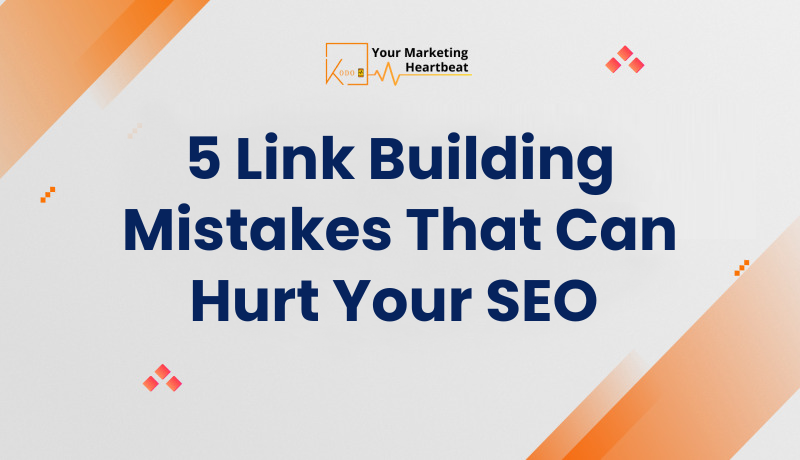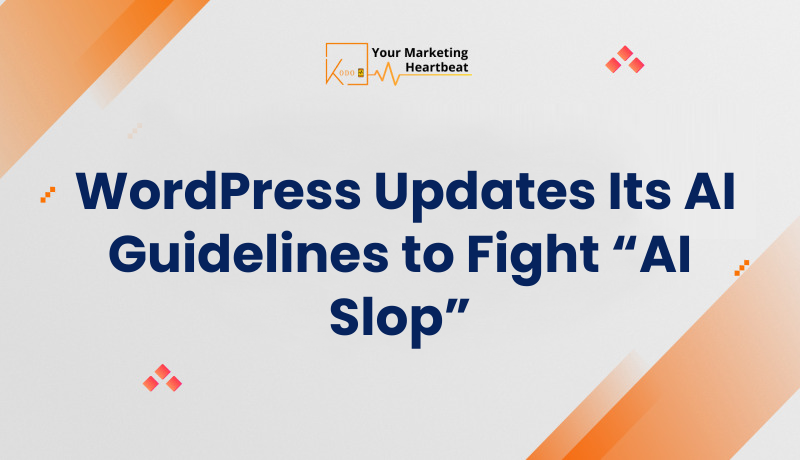

In the ever-evolving landscape of digital marketing, link building remains a cornerstone of effective SEO strategies. However, not all link building practices are created equal. As we navigate the complexities of search engine algorithms in 2025, it’s crucial to understand that certain link building mistakes can severely impact your website’s search engine rankings and overall online visibility.
In this comprehensive guide, we’ll explore five critical link building mistakes that could be detrimental to your SEO efforts. By understanding these pitfalls and learning how to avoid them, you’ll be better equipped to build a robust and effective link profile that boosts your website’s authority and drives organic traffic.
Let’s dive into the world of link building and uncover the strategies that will help your website thrive in the competitive digital ecosystem.
In the realm of link building, the age-old adage “quality over quantity” holds more truth than ever before. As search engines become increasingly sophisticated, the focus has shifted from amassing a large number of backlinks to cultivating a portfolio of high-quality, relevant links.
Many website owners and marketers fall into the trap of believing that more links automatically translate to better SEO performance. This misconception often leads to the acquisition of numerous low-quality backlinks from irrelevant or spammy websites. However, this approach can be counterproductive and potentially harmful to your website’s search engine rankings.
Low-quality links from dubious sources can be seen as a red flag by search engines, signaling potential manipulation of search results. These links not only fail to provide any significant SEO benefit but can also trigger penalties or algorithmic filters that negatively impact your website’s visibility in search results.
Instead of chasing after a high quantity of links, focus on acquiring backlinks from reputable, authoritative websites within your industry or niche. These high-quality links act as strong endorsements for your content, signaling to search engines that your website is a trusted and valuable resource.
When evaluating potential link sources, consider factors such as:
While there’s no official tool from search engines to measure website quality, you can leverage third-party SEO tools like Ahrefs, SEMrush, or Moz to assess the authority and credibility of potential link sources.
To acquire high-quality backlinks, focus on building genuine relationships with reputable websites and influencers in your industry. This approach not only leads to more valuable links but also opens doors for collaborative opportunities and increased brand exposure.
Consider these strategies for building relationships and earning quality backlinks:
Remember, a few high-quality backlinks from authoritative sources can have a more significant impact on your SEO than dozens of low-quality links from irrelevant websites.
While focusing on quality over quantity may seem like a slower approach, it offers numerous long-term benefits:
By prioritizing quality in your link building efforts, you’re investing in the long-term success and sustainability of your website’s SEO strategy.
One of the most critical aspects of effective link building is ensuring the relevance of the websites linking to your content. Many SEO practitioners make the mistake of pursuing backlinks from any website willing to provide them, regardless of its topical relation to their own site. This approach can lead to a disjointed and potentially harmful backlink profile.
Search engines have become increasingly adept at understanding the context and relationships between websites. When you acquire links from sources that are topically relevant to your industry or niche, it sends a strong signal to search engines about the focus and expertise of your website.
Conversely, links from unrelated websites can confuse search engines and dilute the perceived authority of your site in its specific field. For instance, if a law firm’s website has backlinks from technology blogs, entertainment sites, and travel portals, it becomes challenging for search algorithms to accurately categorize and rank the site for relevant legal queries.
To ensure you’re building a relevant link profile, consider the following strategies:
When evaluating potential link sources, ask yourself:
Building links from irrelevant sources can have several negative consequences:
One of the most effective ways to attract relevant backlinks is by creating high-quality, industry-specific content. This approach not only helps you earn natural links but also ensures that the links you receive are from relevant sources.
Consider these content types for attracting relevant backlinks:
By focusing on creating valuable content for your industry, you increase the likelihood of earning links from relevant, authoritative sources.
Building a relevant link profile offers several long-term benefits:
By prioritizing relevance in your link building efforts, you’re not just improving your SEO – you’re also strengthening your overall online presence and industry positioning.
In the pursuit of building a robust backlink profile, it’s easy to overlook the quality of the content surrounding your links. However, the context and quality of the content hosting your backlinks play a crucial role in determining the value and impact of those links on your SEO efforts.
Many website owners and marketers fall into the trap of accepting backlinks from any source willing to provide them, regardless of the content quality. This approach can lead to several issues:
Another common mistake is building links through content that is plagiarized or duplicated across multiple websites. This practice can have severe consequences:
To maintain high standards in your link building efforts, consider the following strategies:
Investing in high-quality, original content not only helps you earn better backlinks but also provides several additional benefits:
To ensure your link building efforts align with high content standards, consider these approaches:
By prioritizing content quality in your link building strategy, you can expect:
Remember, in the world of SEO and link building, quality always trumps quantity. By focusing on creating and associating with high-quality content, you’re investing in the long-term success and credibility of your website.
In the quest for improved search engine rankings, many website owners and SEO practitioners fall into the trap of creating unnatural link profiles. This mistake can not only negate the positive effects of your link building efforts but also potentially lead to penalties from search engines.
A natural link profile is one that appears organic and diverse, mirroring the way websites would naturally link to each other without manipulation. Search engines have become increasingly sophisticated in detecting artificial link patterns, making it crucial to maintain a natural-looking backlink profile.
An unnatural link profile can have several negative consequences:
To maintain a natural link profile, consider the following approaches:
Creating high-quality, shareable content is one of the most effective ways to build a natural link profile. When you produce valuable resources, other websites are more likely to link to you organically, resulting in a diverse and natural-looking backlink profile.
Consider these content types for attracting natural links:
Regularly auditing and maintaining your link profile is crucial for long-term SEO success. Use tools like Google Search Console, Ahrefs, or Moz to monitor your backlinks and identify any potential issues.
Key aspects to monitor include:
If you identify unnatural or low-quality links, consider reaching out to the linking sites for removal or use Google’s disavow tool as a last resort.
Maintaining a natural link profile offers several advantages:
By focusing on building a natural, diverse link profile, you’re not just optimizing for search engines – you’re creating a robust online presence that benefits your brand in multiple ways.
The world of SEO is in a constant state of flux, with search engines regularly updating their algorithms to provide better user experiences and combat manipulative practices. One of the most significant mistakes in link building is failing to stay current with these changes and adapt strategies accordingly.
What worked in link building a few years ago may not only be ineffective today but could potentially harm your website’s search engine rankings. Relying on outdated tactics can lead to:
To stay ahead in the SEO game, it’s crucial to understand how link building has evolved:
To ensure your link building strategy remains effective, consider these approaches:
As you stay informed about SEO trends, be prepared to adjust your link building tactics. This may involve:
As search engines become more sophisticated, the line between content marketing and link building continues to blur. Creating high-quality, valuable content has become one of the most effective ways to earn natural, high-quality backlinks.
Consider these content-driven link building strategies:
Modern link building should be viewed as part of a broader, holistic SEO strategy. This means considering how your link building efforts interact with other aspects of SEO, such as:
By taking a holistic approach, you ensure that your link building efforts complement and enhance your overall SEO performance.
Staying current with SEO trends and adapting your link building strategy accordingly offers several advantages:
Remember, the key to successful link building in 2025 and beyond is to remain flexible, informed, and focused on providing value to your audience. By staying ahead of SEO trends and continuously refining your approach, you’ll be well-positioned to build a strong, effective link profile that stands the test of time.
As we’ve explored throughout this guide, link building remains a crucial component of successful SEO strategies in 2025. However, it’s clear that the landscape has evolved significantly, and avoiding common mistakes is just as important as implementing effective tactics.
Let’s recap the five critical link building mistakes to avoid:
By steering clear of these pitfalls and focusing on building high-quality, relevant, and natural backlinks, you’ll be well-positioned to enhance your website’s authority, improve search engine rankings, and drive meaningful organic traffic.
Remember, effective link building is not about quick fixes or shortcuts. It’s a long-term strategy that requires patience, creativity, and a commitment to providing value to your audience. By creating exceptional content, fostering genuine relationships within your industry, and staying informed about SEO best practices, you’ll build a robust and sustainable link profile that stands the test of time.
As you move forward with your link building efforts, keep these key principles in mind:
By adhering to these principles and avoiding the common mistakes we’ve discussed, you’ll be well-equipped to navigate the complex world of link building and achieve lasting SEO success. Remember, the goal is not just to rank higher in search results, but to establish your website as a trusted, authoritative resource in your industry. With the right approach to link building, you’ll be well on your way to achieving that goal.



April 23, 2024